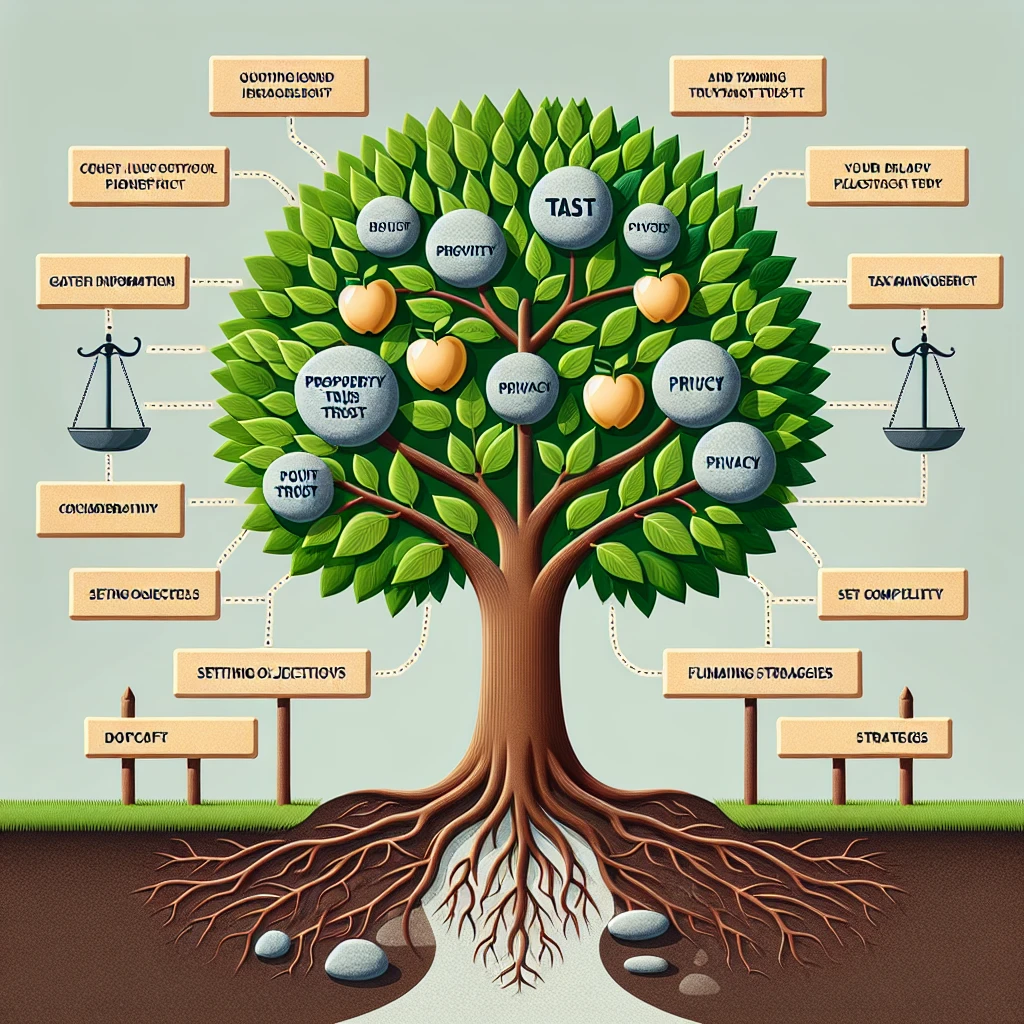This article serves educational purposes only and does not constitute legal advice. To receive personalized guidance for your circumstances, please consult a lawyer.
One of the most challenging financial decisions you may face in your lifetime is determining the fate of your assets after you’ve passed away. Although estate planning can be inherently uncomfortable, addressing it is crucial.
During your estate planning journey, you might explore various methods to transfer assets to your children, grandchildren, or other loved ones. Fortunately, you have several options available.

Drafting a will to detail your final wishes is one route. However, you might also want to consider establishing a living trust to facilitate the transfer of inheritance to your family.
There are numerous advantages to choosing this path, but it’s essential to consider the broader context.
Advantages of a Living Trust
A living trust is a legal arrangement that allows you to transfer assets by placing them into the trust for your designated beneficiaries to inherit. The key advantage of a living trust is that you retain control over your assets while you are alive. If you decide to change your mind about an asset after placing it in the trust, you have the flexibility to remove it. Additionally, you can modify beneficiaries according to your preferences.
Perhaps a more significant advantage of a living trust is that it bypasses probate, unlike a will. When you pass away leaving a will, your loved ones must endure probate, the court’s process of validating a will.
Probate can be lengthy and costly. Moreover, during probate, your will becomes a matter of public record, compromising privacy.
With a living trust, your beneficiaries may access their inheritance more quickly and without the cumbersome probate process. Equally important, their privacy is safeguarded, preventing others from discovering inheritance amounts through records searches.
Considerations for a Living Trust
One potential drawback of establishing a living trust is the cost. Expect to invest more in a living trust than in a standard will, and the complexity of your estate may drive up attorney fees.
If your estate is intricate, you may incur higher attorney fees for a will than someone with a simpler financial situation. It’s wise to assess potential costs before deciding.
It’s also important to understand that placing assets into a living trust doesn’t necessarily offer tax advantages. Assets placed in the trust are subject to the same taxes you would ordinarily pay. For instance, if you earn $150,000 annually, you cannot place that income into a trust to evade income taxes.
Overall, a living trust can be a valuable estate planning tool for you and your family. It’s worth discussing this option with your family and consulting an attorney who can evaluate the pros and cons as they apply to your unique situation.
The $22,924 Social Security Bonus Most Retirees Overlook
If you’re like many Americans, you might find yourself lagging in retirement savings. However, a handful of lesser-known “Social Security secrets” could enhance your retirement income. For example, a simple strategy might increase your annual income by as much as $22,924! By learning how to maximize your Social Security benefits, you could retire with the confidence and peace of mind we all seek. Click here to explore these strategies further.
View the “Social Security secrets” ›




